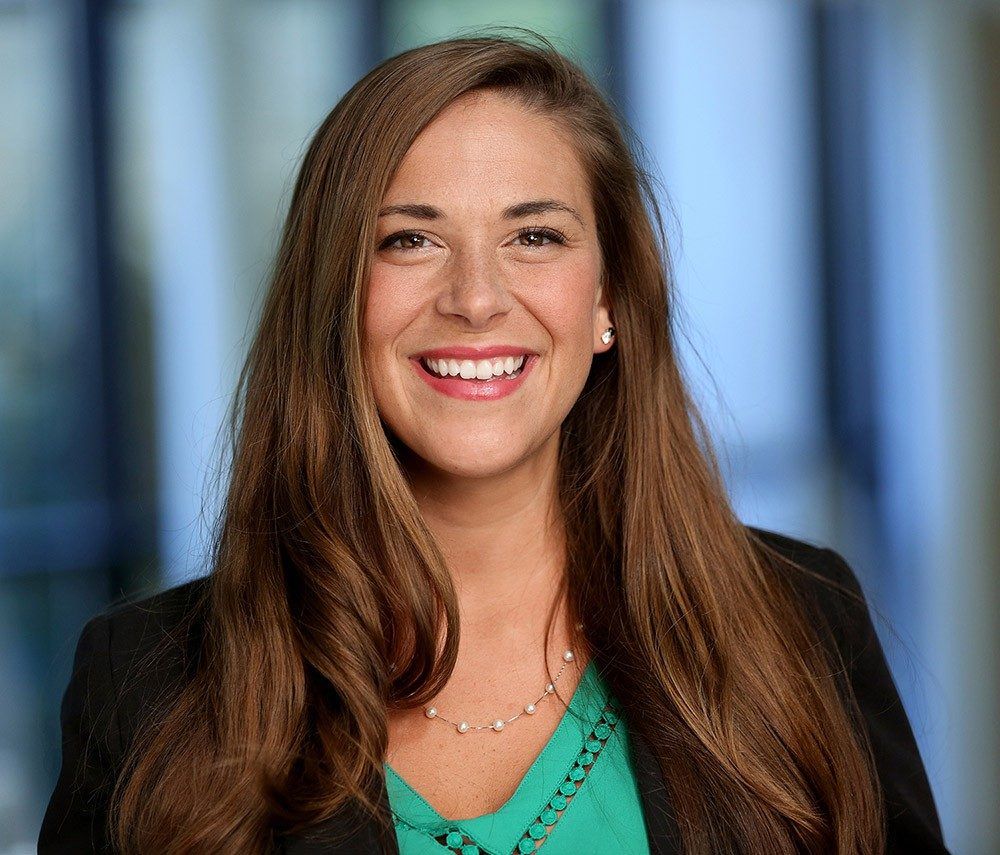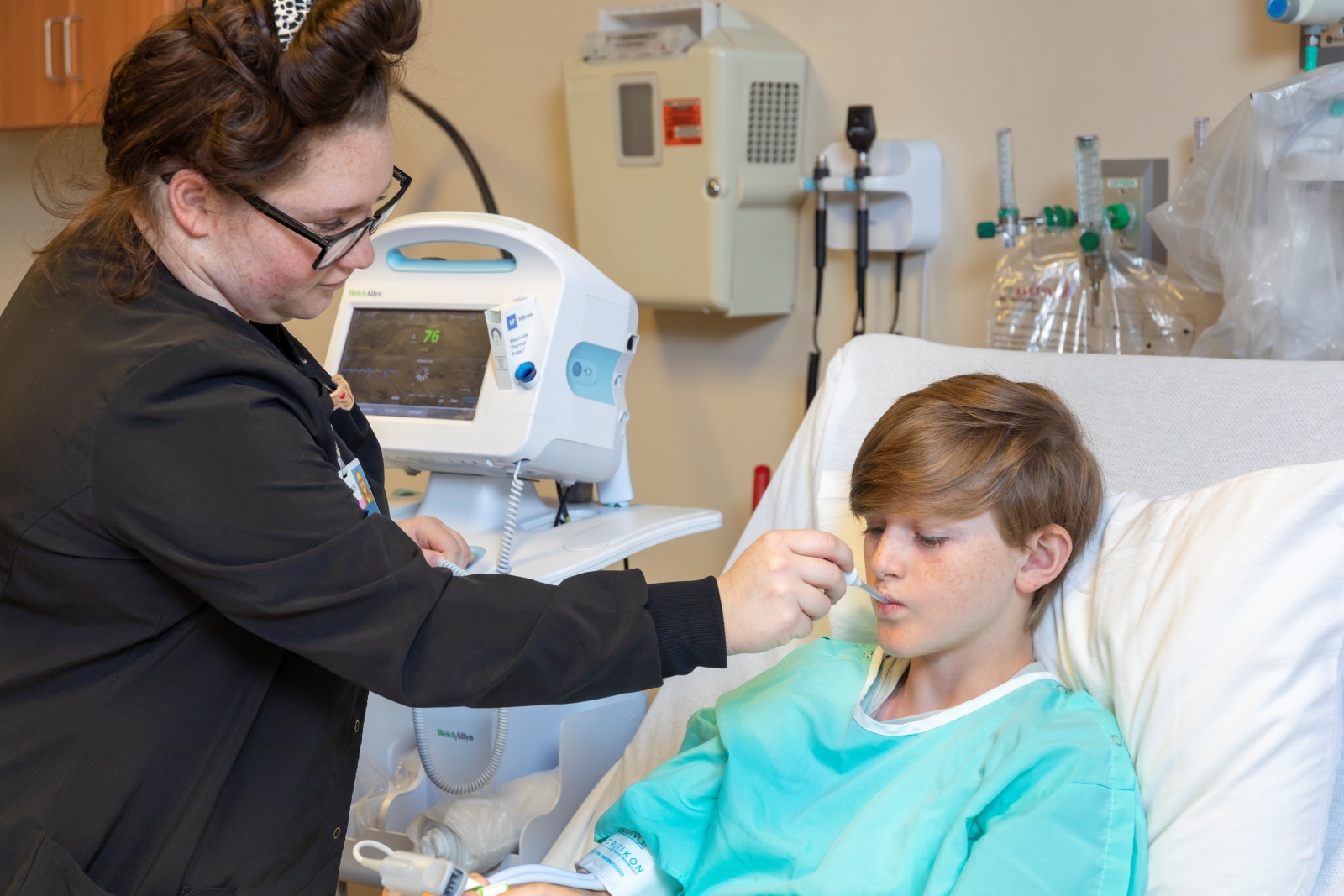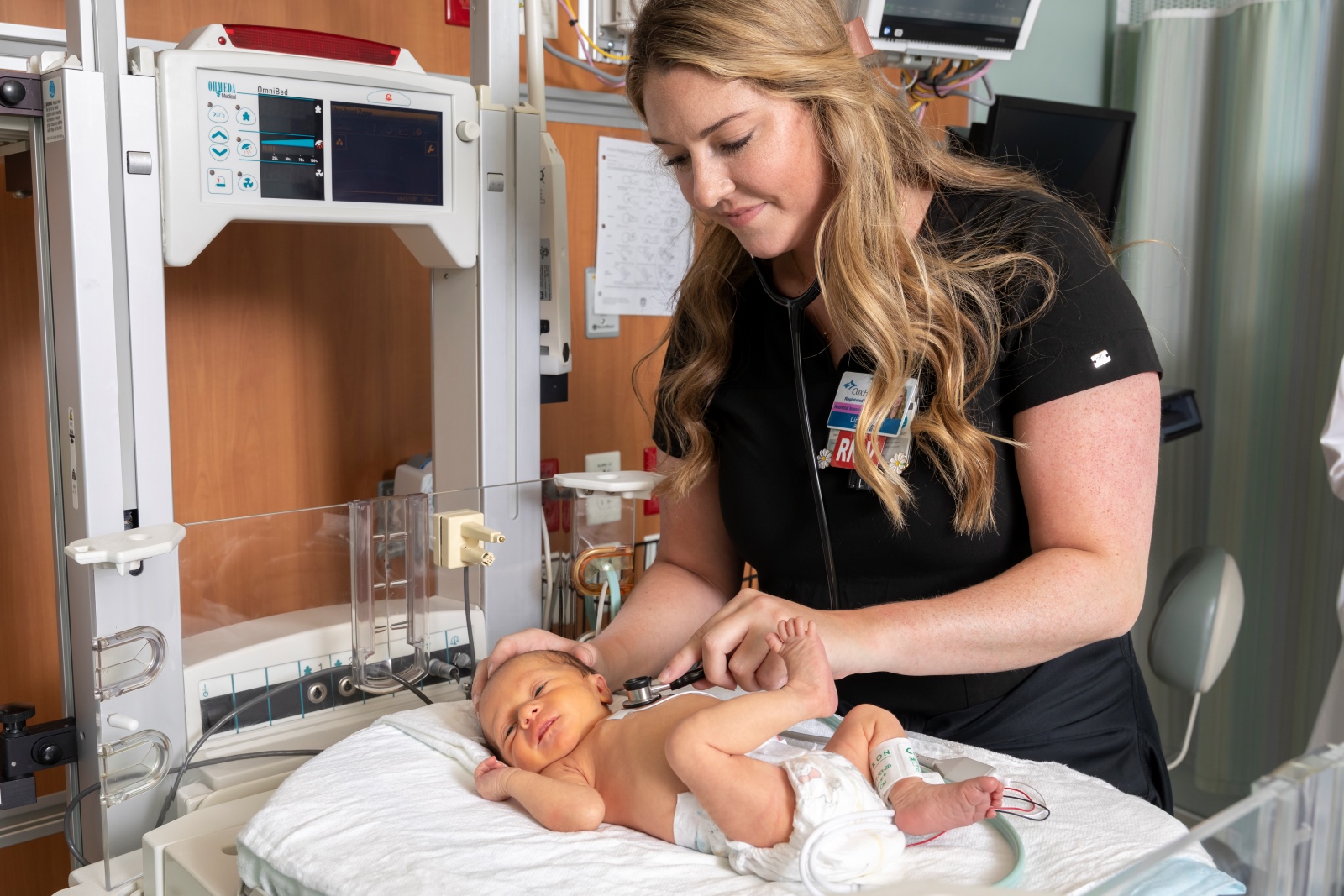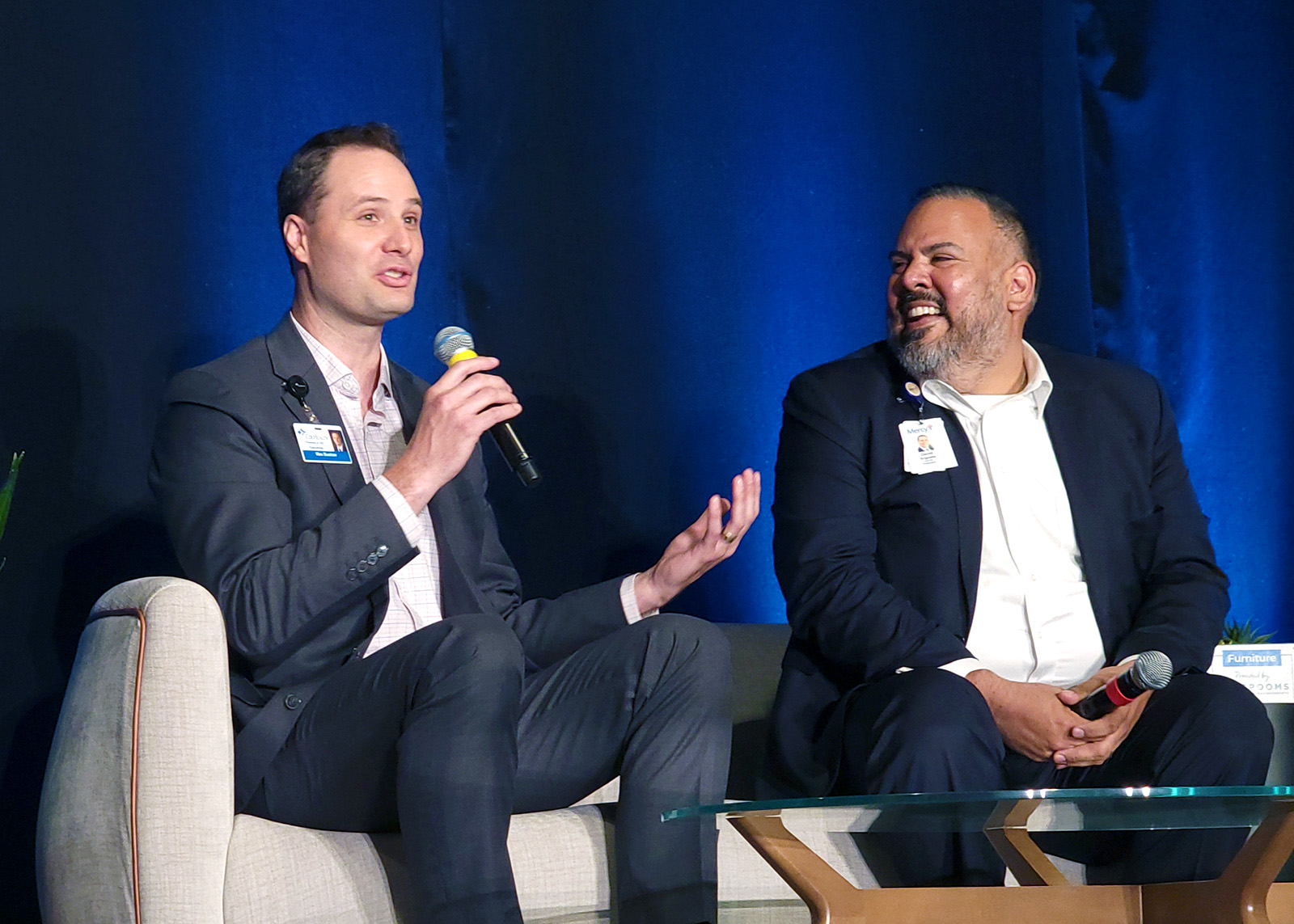Want to go?
Springfield’s two major health systems, CoxHealth and Mercy Springfield, hope to attract a partner to build a children’s hospital in Springfield to provide specialized pediatric care, and they are seeking community input. The public is invited to attend a listening session at 5:30-6:30 p.m. Wednesday, Dec. 13, at Jarrett Middle School, 906 W. Portland St., to ask questions and learn about the project. The meeting will not be available in a virtual format.
IN-DEPTH
The leaders of CoxHealth and Mercy Springfield Communities are exploring the idea of expanding children’s medical services with a new, standalone pediatric hospital in Springfield.
The two historically competing health systems are calling the plan an “unprecedented collaboration.”
To that end, the health leaders are searching for a partner health system that has a national reputation for providing children’s care at an exceptional level, CoxHealth President and CEO Max Buetow says in his recent Coxhealth.com feature “Direct Line from Max Buetow.”
They want to align with a full-service pediatrics partner that can build on skills of pediatric physicians and staff at the two Springfield hospitals.
After discussing gaps in pediatric services and outlining southwest Missouri's health goals for the past year with hospital and community leaders, CoxHealth and Mercy issued a request for proposals seeking a third partner. It’s a closed process; the leaders will not publicly discuss potential partners, but CoxHealth and Mercy both work with out-of-town health care systems in coordinating care for pediatric patients.
The goal is to address gaps in Springfield’s pediatric care and reduce the number of young patients and families who are sent back and forth between the two Springfield hospitals, or have to travel out of town for specialty care.
About 30% of patients who receive care in Missouri’s children’s hospitals come from southwest Missouri, according to national health care data, said Dr. Staci Rogers, CoxHealth chief transformation officer. Together, CoxHealth and Mercy serve an area that includes about 225,000 children from southern Missouri, northern Arkansas and eastern Kansas, she says.
Barriers to children getting proper care

Rogers is the project lead for CoxHealth working with Mercy’s project lead Marie Moore, chief nursing officer of Mercy Springfield Communities.

“We only know the patients we’re serving, and there’s a potential that there are more families and kids out there that don’t have the means to travel and seek advanced care,” Moore says. “That’s one of the things that keeps me up at night.”
Around Springfield, there are many smaller communities where children need care, she adds.
“We want to be really inclusive of everyone who might need care in this,” Moore said.
That could include broader outreach to families going without care because they lack access and/or lack the means to travel.
Conversation to start the project

Health officials need to gauge Springfield's interest in the pediatric medicine endeavor, so they are hosting a free, public listening session at 5:30-6:30 p.m. Wednesday, Dec. 13, at Jarrett Middle School. Panelists will include the health systems’ CEOs, their lead pediatric physicians and Springfield community leaders.
Everyone is welcome, and organizers especially want to hear from families who have received care at Springfield hospitals or have had to travel out of town for specialty pediatric care. Social service workers and health care groups that serve children, business leaders and citizens interested in the future of pediatric care are all invited.
“Health care is such an intimate part of our community and of our population, and although even if an individual doesn’t have kids themselves, with having families and roots within this community, pediatric services affect us all and it is our future generation,” Moore says.
It’s too early in the process to know how long the project will take or what it could cost, Moore says. A location for a pediatric hospital is yet to be determined, other than somewhere in Springfield.
First-hand experience

Mike and Katie Campbell of Nixa wish there had been more specialty care available close to home when their daughter, Emma, was born 26 weeks prematurely. She weighed 1 pound, 15 ounces, and was treated at CoxHealth’s Neonatal Intensive Care Unit.
Emma was intubated for about 10 weeks, and suffered seizures and lung issues.
“If there was anything she could get, she had it,” Mike Campbell says.
When Emma developed a serious intestinal complication, she was transferred to Cardinal Glennon Hospital in St. Louis, where she stayed for two months. Today, at 3 years old, petite Emma is an “awesome, perfect and perfectly healthy” child, her dad says.
If the Campbells hadn’t had relatives in St. Louis offer Katie a place to stay during those two months, it would have been difficult for the family, Mike says. As it was, he stayed behind and traveled back-and-forth on weekends to see his wife and newborn baby. Both parents spent long hours at the St. Louis hospital.
“We felt at home at Cox and felt like it was a family there, and we were taken care of,” Mike says. “That missing technology was the piece that would have extended our stay in Springfield.”
Strong hometown pediatric care

Both Mercy and CoxHealth's Springfield hospitals have pediatric programs and have worked together to provide access to treatment for many years, the hospital leaders note. That’s evident during times of high demand, such as respiratory illness season, says Cox’s Dr. Rogers.
Neither Mercy nor Cox offer the full range of care young patients need. But rather than focusing on specific services a new children’s hospital would offer, Rogers says, the goal is to “elevate pediatric care” across the board for southwest Missouri. The right partner can help officials with CoxHealth and Mercy better understand what specialty services they would need to do that, Rogers adds.
There’s a benefit from the physicians’ perspective, Dr. John Burson said at a Nov. 13 press briefing. He is a general pediatrician and Regional Service Line Chair for Women and Children at Mercy Springfield Communities. Two of the same pediatric specialists working at each of the two hospitals may split the patient base, meaning there aren’t enough cases to keep them busy — making it hard to attract and retain specialists. Pooling specialists in a community helps to keep them under one umbrella to satisfy community needs, Burson said.
At the same press conference, Buetow said Cox and Mercy will continue to be fiercely competitive in providing health care, but both are committed to collaborate on furthering pediatric care.
One factor fostering cooperation is that the health leaders recognize they’re working in a new environment today.
“The pandemic created an environment where people are more receptive to collaboration and outside-the-box thinking than ever before,” Buetow writes in his online message. “The challenges of the last few years forced us to think dynamically, and they refocused us on what it truly means to provide better care for the community.”
David Argueta is president of Mercy Springfield Communities.
“Our hope is that by working together and by issuing the (request for proposals), we can find a viable solution that transforms pediatric care for our region for generations to come,” Argueta said in a Nov. 17 news release announcing the plan. “This project is closely tied to both of our missions, and I believe this could be a transformative opportunity for the Springfield region.”
Seeking approval at all levels

In early discussions about how to improve pediatric care, the hospital leaders got feedback and insight from key community partners including the Springfield city government and Springfield Area Chamber of Commerce.
Robust community support will also be necessary for the project to succeed at the state level. Long before the first shovel is turned, the partners will be required to make a case for the project and obtain state approval from the Missouri Health Facilities Review Committee. Springfield health leaders must demonstrate a need for the project and show it has support among community leaders, citizens and Springfield-area legislators. Community meetings like the one on Dec. 13 can help build that case.
The review process begins with a “letter of intent” and, when successful, ends with the committee granting a certificate of need. The committee began in 1980 under the Missouri Department of Health and Senior Services. Guidance and decision-making is provided by volunteer members of the committee.
The goal of the process is to help contain costs by reviewing and managing major spending by medical entities, preventing unnecessary duplication of health care services, and making sure there’s a community need.

Looking ahead to the first community session on Dec. 13, CoxHealth’s Buetow said in his announcement, “There is an air of collaboration in our community, and this is the next evolution. We are thrilled with this first step and optimistic about what this means for the future of pediatric patients in our region.”
Moore at Mercy underscores the “unprecedented” nature of the project, saying, “Historically our organizations have not experienced this type of openness and collaboration.” The two have heavily and openly cooperated on research – “... embarking on what I would say is not the standard,” she says. That’s refreshing, she adds, and encouraging that CoxHealth and Mercy continue to work together.
“I’m excited about that,” Moore says. “The fruits of that labor will impact generations — our current children and their children. Given our region and the reach of our services we deliver, this is a really, really big thing for our community.”

